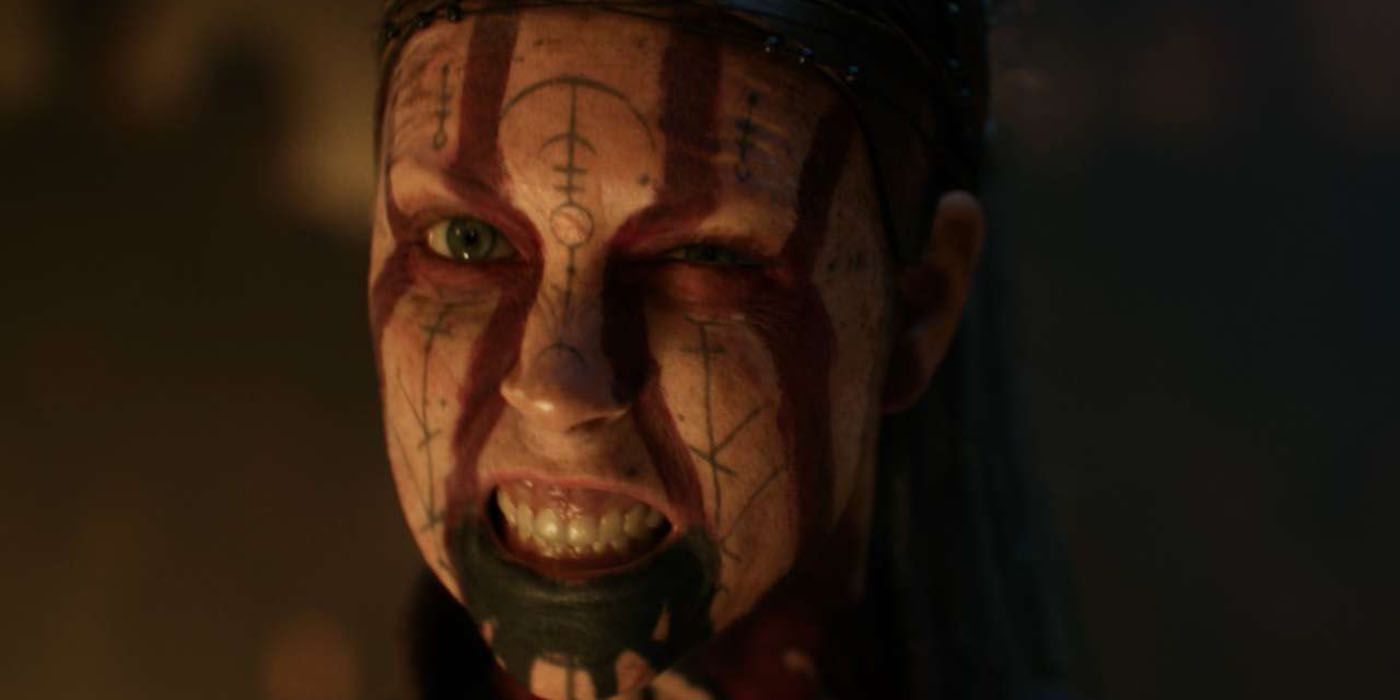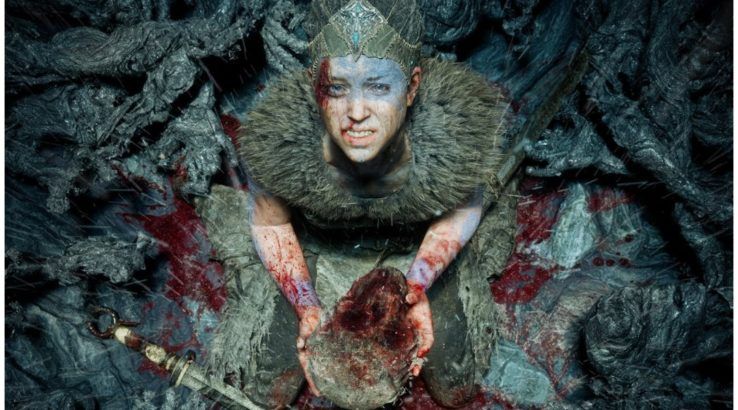At The Game Awards this year, Senua's Saga: Hellblade 2 made itself heard with its first trailer demonstrating unique folklorian aesthetics in its dark fantasy setting, and, of course, jaw dropping visuals. Being the first game announcement and revelation for the Xbox Series X, Senua's Saga: Hellblade 2 certainly enshrined the high power capabilities which this next-gen console may behold. If game fans did not know who Senua was before yesterday, they may know her name now and probably have many questions in mind. Be warned: SPOILERS for Hellblade: Senua's Sacrifice ahead.
Senua's Saga: Hellblade 2 stars Senua, a Pict warrior from Scotland, set in the 8th century. The Pict people lived in ancient times in the eastern and northwestern regions of Scotland, known by contemporary historians for their intricate body paint and possible tattooing. Much about their origin is uncertain, but it is believed by some historians that they pre-date even the Celtic aborigines in Scotland and engaged in warfare against the early Romans as historical documentation suggests.
However, Senua is no ordinary Pict, and this is not a typical story of a female warrior and protagonist. Senua is a nuanced character, who has endured her share of life's hardships, suffering from mental health issues herself, specifically psychosis. As such, the story and setting is not merely a jaunt through a particular timeframe of history, but rather, it is a historical journey in which the players view this part of history through the lens of someone suffering from particular mental health issues.
Mental health still holds a stigma in today's society, as many people have very little understanding of this serious issue and may even lack empathy for those who suffer from various types of these issues. The developers at Ninja Theory put a lot of time into Hellblade: Senua's Sacrifice, in researching mental health issues. They spent many hours consulting with renowned psychiatrists and people who suffer from various types of mental health issues in order to try and produce an accurate portrayal of Senua's world-view.
In doing so, they put a lot of effort into ensuring that they provide game players an accurate and empathetic portrayal of mental health issues that would not offend those who suffer from these issues. One of the most unique goals of Hellblade: Senua's Sacrifice was not merely to portray what life and beliefs may have been composed of during ancient times, but to portray how someone with particular mental health issues back in ancient times would have viewed the world, and how the particular society may have viewed and treated them in return.
By living through Senua's eyes, players are taken through a journey in which she attempts to confront her mental tribulations, which she views as a curse known as the darkness. When Senua's tribe and lover were murdered in broad daylight by Vikings from the north, her world is shattered. Senua then sets out on a journey to seek out Hela, the goddess of death, hoping to bring her lover, Dillion, back from death.
Senua's mother was a priestess named Galena, who suffered from psychosis as well. Given that there was much less understanding of mental health issues back then, it was believed she suffered from a curse. Her father was a druid known as Zynbel.
Even before the events that led to the murder of Senua's lover and tribe, she had already endured a hard life. At a young age, Senua's father lead their tribe to burn her mother Galena alive, because they perceived her as being a witch. When her lover, Dillion, is murdered by the norse invaders, it makes her mental condition go from bad to worse.
While wandering the wilds, Senua met a man named Druth, who educates her about the Vikings who murdered her lover and tribe. This leads her to believe that Dillion's soul is in the possession of the Vikings' norse gods. This brings Senua to the lands ruled by Vikings, where she believes she can save Dillion.
Through much battle and tribulation in which she confronts her inner darkness in the form of doing battle with unmerciful demons and monstrosities, Senua eventually is confronted by Hela near the end of the game. Senua blames Hela for all that has gone wrong in her life. She begins to question whether Hela is even real, confronting the reality that her surroundings are distorted by her imagination.
Senua concludes that Hela is not a lie, but rather she is a liar, which suggests that she is a representation of the psychosis within Senua, and the essence of the darkness that has made her life so difficult. Senua tries to offer herself as a sacrifice to Hela if she will return Dillion to the real world, but even she comes to the conclusion that such is merely wishful thinking, and that her journey has seemingly been in vain, or not.
When Senua realizes she has no fear left in her, and is without any quest to lead her onward in her fruitless journey with no reward at the end, she ultimately conquers her inner-darkness by coming to the conclusion that it, Hela, has no power over her anymore either. Her lover, Dillion, proceeded to speak to her in her thoughts, explaining to her that "a life without loss is one without love," justifying his own death as a natural process and that death is something to embrace as a "friend."
"Only then can we let go of fear, and emerge from our darkness," Dillion proceeds to explain. Hela then picked up the skull of Dillion, which Senua had brought with her on her journey. Hela drops the skull over a cliff, and Hela transforms into Senua. This suggests that Senua was willing to give up her fixation with Dillion's death. It also suggests Hela was merely an piece of Senua's inner-self, and not really a separate entity. Most importantly, it suggests that Senua had conquered the darkness, Hela, within her.
By giving up Dillion's skull, she decides that the past will no longer dictate her thoughts and invoke the dark thoughts within her and provoke her actions and decision-making. While she still hears some voices in her head at the end of the game, she demonstrates that she will no longer be controlled by them, and that her character has evolved and strengthened.
While this is merely a summary of the story, there are some important takeaways here. Firstly, it is a very deep and subjective story, with many nuances, and this summary is but one interpretation of all its complexities. And that is perhaps the beauty of this game. Fans are welcome to play the game for themselves and try to digest its full meaning, as each person may have a much different interpretation of the narrative of Hellblade: Senua's Sacrifice.
As Senua's Saga: Hellblade 2 is set for release on the next-gen Xbox Series X console, hopefully we can obtain a more vivid picture of both Senua's past, and what the future may behold for her. From what can be gathered from the trailer, fans may get to enjoy an even stronger and more resilient Senua, who has conquered her inner-darkness as she carves out her own path and future.
Senua's Saga: Hellblade 2 is in development for the Xbox Series X for release in 2020.


